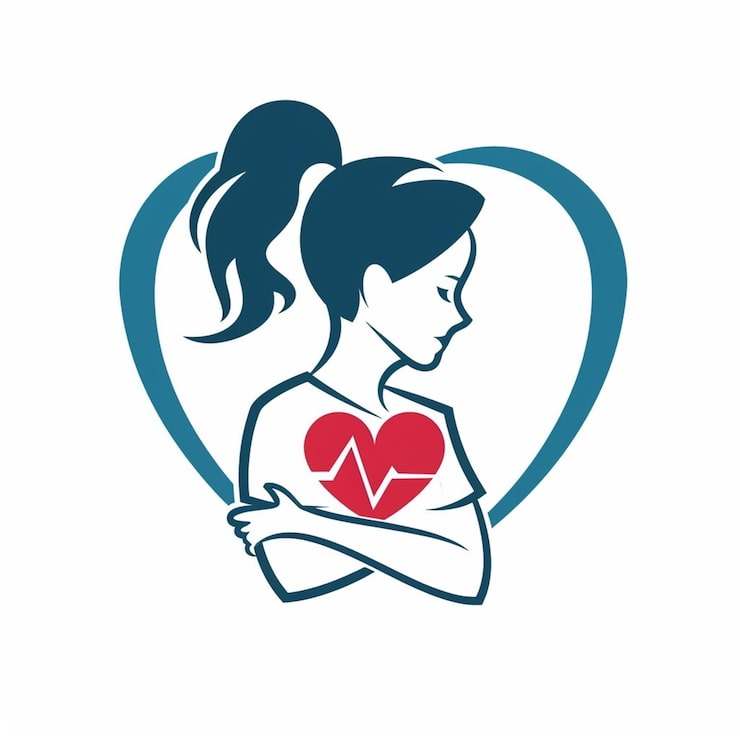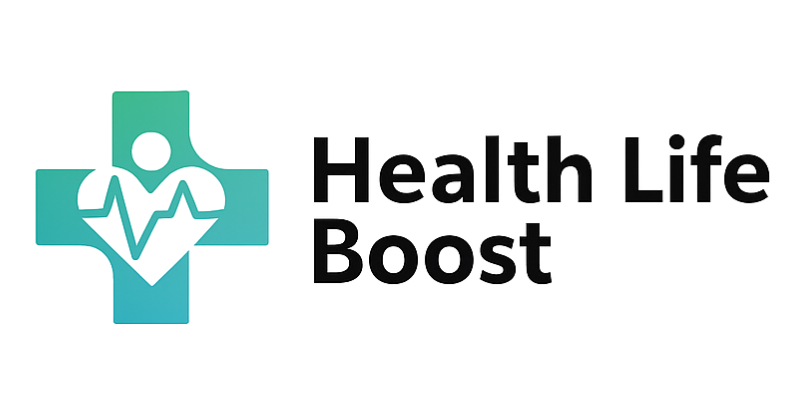Introduction to Women’s Health Jobs
Are you curious about womens health jobs and what it takes to start a career in this exciting field? If so, you’re in the right place. Working in women’s health isn’t just a job—it’s a chance to make a real difference in people’s lives. From OB/GYN jobs to women’s health nurse practitioner roles, the opportunities are vast and rewarding.
So, what exactly are womens health jobs? Simply put, these are careers focused on helping women stay healthy at every stage of life. That could mean assisting in a nurse midwife role during childbirth, performing scans as an ultrasonographer, or offering guidance as a doula. There are also administrative positions like women’s health medical assistant, patient care coordinator, or even women’s health program manager, where you support the people who are directly providing care.
One of the great things about womens health jobs in the U.S. is the variety. If you love direct patient care, roles like OB/GYN physician, labor and delivery nurse, or fertility nurse might be perfect for you. If research excites you, positions such as clinical research coordinator in womens health or women’s health data analyst can let you explore new ways to improve care. And if you’re a natural organizer or a strong communicator, women’s health administrative assistant or community health outreach coordinator roles could be just what you need.
Another exciting trend is the rise of remote opportunities. Jobs like remote women’s health nurse practitioner allow you to provide care and guidance virtually, giving you more flexibility without sacrificing impact. Plus, specialized roles like women’s health policy analyst or women’s health consultant open doors to shaping the future of healthcare policies and programs.
By choosing a career in women’s health, you’re stepping into a field that values empathy, expertise, and dedication. Whether it’s a hands-on role like nurse midwife or a behind-the-scenes position like women’s health program director, every role contributes to healthier, happier lives for women across the country. And the best part? There’s a career path for almost every interest and skill level, from entry-level positions to leadership roles.
So, if you’ve ever thought about making a meaningful impact while building a stable and rewarding career, exploring women’s health jobs could be your next big step. Your journey starts here—and the possibilities are endless.
Understanding Womens Health Jobs
Now that you have a glimpse of womens health jobs, let’s dive deeper into what these careers really involve. Think of this section as your roadmap to understanding the variety, purpose, and impact of working in women’s health.
At its core, womens health jobs in the U.S. are all about improving women’s lives—from adolescence to menopause and beyond. These careers can be grouped into a few main categories: clinical roles, administrative positions, research opportunities, and educational roles.
Clinical Roles
If you enjoy hands-on care, clinical positions are where the action is. OB/GYN jobs are the most well-known, involving the care of women during pregnancy, childbirth, and reproductive health. Women’s health nurse practitioner (WHNP) roles allow you to manage patient care independently, providing treatment and guidance across many health areas. Other clinical roles include nurse midwife, who assists in childbirth, ultrasonographer, who performs imaging, and doula, offering emotional and physical support during pregnancy and labor. Even labor and delivery nurses and fertility nurses play critical roles in helping women feel safe and cared for.
Administrative and Coordination Roles
Not all womens health jobs require direct patient care. Positions like women’s health medical assistant, patient care coordinator, or women’s health program manager keep the healthcare system running smoothly. These roles handle scheduling, patient communication, program management, and ensure clinics and hospitals operate efficiently. Women’s health administrative assistants also support the team behind the scenes, making sure everyone has what they need to succeed.
Research and Policy Roles
If analyzing data, conducting studies, or influencing healthcare decisions excites you, consider roles like clinical research coordinator in women’s health, women’s health data analyst, women’s health policy analyst, or women’s health consultant. These careers allow you to improve outcomes, identify gaps, and shape policies that affect millions of women.
Educational Roles
Education is key in women’s health. Women’s health educators teach patients about wellness, disease prevention, and healthy lifestyle choices. Program directors may lead community outreach initiatives, ensuring that women across cities and states have access to the care they need.
Some positions, like remote women’s health nurse practitioner, even let you work virtually, providing care and guidance from anywhere in the U.S., which adds flexibility without sacrificing impact.
In short, womens health jobs offer variety, purpose, and opportunities for growth. Whether your passion is patient care, administration, research, or education, there’s a role that fits your skills and ambitions. The key is to explore, learn, and find the path where you can make the biggest difference while building a rewarding career.
Primary Job Roles and Opportunities
If you’re ready to explore the real heart of womens health jobs, this section is for you. There are many paths you can take, and understanding the primary roles can help you decide where you fit best.
Clinical Roles That Make a Difference
The most visible womens health jobs in the U.S. are in clinical care. OB/GYN jobs are at the top of the list. Physicians in this field care for women during pregnancy, childbirth, and reproductive health. If you enjoy working closely with patients, this is an incredibly rewarding career.
For those who want autonomy but not a full physician track, becoming a women’s health nurse practitioner (WHNP) is a fantastic option. WHNPs manage patient care, diagnose conditions, and even provide treatment plans. Other hands-on roles include nurse midwife, who guides mothers through childbirth, ultrasonographer, who performs imaging scans, and doula, who provides physical and emotional support during pregnancy. Labor and delivery nurses and fertility nurses also play crucial roles, helping women feel safe and cared for at some of the most important moments of their lives.
Administrative and Support Roles
Not every womens health job involves direct patient care. Women’s health medical assistant and patient care coordinator roles keep clinics organized, helping patients schedule appointments, manage records, and navigate care. A women’s health program manager or women’s health administrative assistant oversees programs, coordinates teams, and ensures everything runs smoothly. These positions are perfect for people who love organization, planning, and supporting others behind the scenes.
Research, Data, and Policy Roles
If you’re passionate about improving women’s health on a larger scale, research and policy positions offer exciting opportunities. Clinical research coordinator in women’s health and women’s health data analyst roles allow you to analyze trends, collect important data, and improve patient outcomes. Meanwhile, women’s health policy analyst and women’s health consultant roles let you influence healthcare policies, shape programs, and advocate for women nationwide.
Remote Opportunities
The world of womens health jobs is evolving. Many roles, such as remote women’s health nurse practitioner, let you provide care virtually. This flexibility allows you to work from home while still making a real impact on patients’ lives.
No matter your skills, interests, or preferred work style, womens health jobs offer a wide variety of opportunities. From direct patient care to behind-the-scenes coordination, research, and policy work, there’s a role that suits you—and a chance to make a meaningful difference every single day.
Emerging and Specialized Roles
While traditional roles like OB/GYN jobs and women’s health nurse practitioner positions are well-known, the world of womens health jobs is evolving fast. There are exciting emerging and specialized roles that give you the chance to make a unique impact, often in ways competitors rarely discuss.
Digital Health and Telemedicine
Technology is reshaping healthcare, and womens health jobs are no exception. For example, remote women’s health nurse practitioner roles allow you to provide care from home, using video calls, apps, and online tools to help patients manage their health. Digital health coordinators and telemedicine specialists are also in demand, ensuring technology enhances care rather than complicates it.
Policy, Research, and Advocacy
If you’re passionate about shaping the future of healthcare, consider women’s health policy analyst or women’s health consultant roles. These careers let you influence programs, improve patient access, and advocate for better healthcare policies across the U.S. Similarly, positions like clinical research coordinator in women’s health or women’s health data analyst involve studying health trends, evaluating treatment outcomes, and discovering new ways to improve women’s care.
Specialized Clinical Roles
Some roles focus on specific areas of women’s health. Fertility nurses help patients navigate reproductive treatments, while labor and delivery nurses ensure safe childbirth experiences. Nurse midwives provide comprehensive care before, during, and after pregnancy. Doulas support mothers emotionally and physically, creating a calmer, more confident birth experience. These specialized roles are incredibly rewarding and offer hands-on patient impact.
Leadership and Program Management
If you enjoy guiding teams and managing projects, consider becoming a women’s health program manager or women’s health program director. These professionals oversee initiatives that improve care quality, expand patient education, and implement community health programs. Leadership positions like these allow you to shape entire clinics, departments, or public health campaigns.
Community Outreach and Education
Some womens health jobs are about connecting with communities. Women’s health educators lead workshops, teach preventive care, and spread awareness about reproductive health. Community health outreach coordinators focus on underserved populations, ensuring everyone has access to care.
The beauty of womens health jobs is that there’s truly something for everyone. Whether you’re drawn to technology, policy, clinical care, education, or leadership, these emerging and specialized roles give you the chance to leave a lasting mark on women’s health across the U.S.
Required Skills and Qualifications
If you’re dreaming about a career in womens health jobs, you might be wondering: What skills and qualifications do I need to succeed? Don’t worry—this section will break it down in simple, clear terms so you know exactly what to focus on.
Educational Background
Most womens health jobs in the U.S. require some level of formal education. For clinical roles like OB/GYN jobs, women’s health nurse practitioner, labor and delivery nurse, nurse midwife, or fertility nurse, a degree in nursing, medicine, or a related health field is essential. For administrative and program roles such as women’s health program manager, women’s health administrative assistant, or patient care coordinator, a degree in healthcare administration, public health, or social sciences can be very helpful.
Certifications and Special Training
Certifications can set you apart. Women’s health nurse practitioners (WHNPs) need WHNP certification, while nurse midwives require midwifery certification. Other specialized certifications for ultrasonographers, doulas, fertility nurses, and clinical research coordinators in women’s health boost your skills and credibility. Even administrative and research roles can benefit from training in data analysis, health program management, or patient care coordination.
Technical Skills
Many womens health jobs require a mix of hands-on and technical abilities. OB/GYN physicians need knowledge of medical procedures, while ultrasonographers must know imaging technology. Remote women’s health nurse practitioners should be comfortable using telehealth tools, electronic medical records, and online communication platforms. Even women’s health data analysts need to know how to collect, organize, and interpret healthcare data.
Soft Skills
Beyond degrees and certifications, soft skills are crucial. Empathy, communication, and teamwork are essential for labor and delivery nurses, doulas, and fertility nurses. Organizational skills, problem-solving, and attention to detail help women’s health program managers, administrative assistants, and patient care coordinators succeed. Leadership and strategic thinking are important for higher-level roles like women’s health program director, policy analyst, or women’s health consultant.
Continued Learning
Healthcare is always evolving, and so are womens health jobs. Continuous learning through workshops, conferences, online courses, and mentorship programs is key. Staying updated on new practices, regulations, and technologies ensures you provide the best care and remain competitive in your field.
With the right mix of education, certification, technical skills, and soft skills, you’ll be well-prepared to excel in womens health jobs. No matter which path you choose—clinical, administrative, research, or leadership—these qualifications will help you make a meaningful impact on women’s lives across the U.S.
Salary Expectations and Career Growth
When thinking about womens health jobs, it’s natural to wonder: What can I earn, and how far can I grow? Let’s break it down in simple terms so you can plan your career with confidence.
Salary Expectations
Salaries in womens health jobs in the U.S. vary depending on the role, experience, and location. OB/GYN jobs are typically among the highest paying, often ranging from $200,000 to $300,000 per year. Women’s health nurse practitioners (WHNPs) usually earn between $90,000 and $120,000 annually. Clinical roles like labor and delivery nurses, nurse midwives, and fertility nurses generally make $70,000 to $100,000, depending on experience and the state.
Support and administrative roles like women’s health medical assistant, patient care coordinator, and women’s health administrative assistant earn between $35,000 and $60,000, while leadership positions such as women’s health program manager or women’s health program director can range from $80,000 to $130,000. Specialized roles like clinical research coordinator in women’s health, women’s health data analyst, women’s health policy analyst, and women’s health consultant also vary, with salaries often between $60,000 and $120,000, depending on skills and location.
Career Growth Opportunities
One of the best things about womens health jobs is the chance to grow. Starting as a women’s health medical assistant or administrative assistant, you could advance to patient care coordinator, program manager, or even program director. Clinical professionals can move from labor and delivery nurse to nurse midwife, then women’s health nurse practitioner, and eventually specialize in fertility care, telemedicine, or policy roles.
Remote and Flexible Roles
Remote opportunities like remote women’s health nurse practitioner positions are growing fast. These jobs not only provide flexibility but can also open doors to higher-paying roles in telehealth, consulting, and data analysis, while still allowing you to make a real impact on patients’ lives.
Specialized Career Paths
If you’re interested in shaping the future of healthcare, specialized roles like women’s health policy analyst or women’s health consultant offer upward mobility and the chance to influence programs and policies on a national scale. Similarly, clinical research coordinator in women’s health and women’s health data analyst roles can lead to senior research positions or leadership opportunities in hospitals, clinics, or research institutions.
In short, womens health jobs offer competitive salaries, multiple career paths, and opportunities to grow professionally while making a meaningful difference. Whether you’re hands-on in clinical care, behind the scenes in administration, or shaping policy and research, your career can evolve in many rewarding ways.
Job Search Strategies
Looking for womens health jobs in the U.S. can feel overwhelming—but it doesn’t have to be! With the right approach, tools, and mindset, you can find opportunities that match your skills, interests, and career goals. Here’s a practical guide to help you get started.
Use Top Job Portals
Online job portals are a great place to begin. Websites like Indeed, Glassdoor, and Monster list thousands of womens health jobs, from OB/GYN jobs to women’s health nurse practitioner positions. You can filter roles by location, salary, experience level, and even remote options, like remote women’s health nurse practitioner roles. Using long-tail keywords such as “women’s health nurse practitioner jobs in New York” or “labor and delivery nurse jobs in Los Angeles” can make your search more precise and effective.
Network with Professionals
Networking is powerful in the women’s health field. Connect with professionals through LinkedIn, industry events, and local healthcare associations. Attend conferences, workshops, and webinars focused on women’s health, maternal care, and reproductive health. Engaging with mentors or joining professional organizations can open doors to roles like women’s health program manager, clinical research coordinator in women’s health, or women’s health consultant.
Leverage Social Media and Online Communities
Social media platforms can also be a goldmine for opportunities. Follow clinics, hospitals, and women’s health organizations on platforms like Instagram, Facebook, and LinkedIn. Join online forums or groups dedicated to womens health jobs, where openings for roles such as women’s health data analyst, women’s health policy analyst, or women’s health administrative assistant are often shared before they appear on job boards.
Prepare for Applications
When applying, tailor your resume and cover letter for each position. Highlight relevant experience in women’s health, certifications like WHNP, or clinical skills like ultrasonography or fertility nursing. Emphasize any leadership, research, or administrative experience if you’re aiming for roles like women’s health program director or women’s health policy analyst.
Consider Internships and Entry-Level Roles
If you’re just starting out, consider internships, volunteer positions, or entry-level roles in women’s health, such as women’s health medical assistant, patient care coordinator, or women’s health educator. These roles provide valuable experience and can often lead to higher-level opportunities over time.
With a strategic approach, using the right tools, networks, and keywords, landing your ideal womens health job becomes much easier. Start searching, stay organized, and don’t be afraid to reach out—you never know where the next opportunity might come from.
Benefits and Work-Life Considerations
Choosing a career in womens health jobs isn’t just about what you do—it’s also about how it fits into your life. From salary and perks to work-life balance, understanding the benefits can help you make smarter career decisions.
Health and Retirement Benefits
Many womens health jobs in the U.S. offer comprehensive benefits, including health insurance, retirement plans, and paid time off. Clinical roles like OB/GYN jobs, women’s health nurse practitioner, labor and delivery nurse, and nurse midwife often come with excellent healthcare coverage and retirement contributions. Administrative and support roles like women’s health program manager, women’s health administrative assistant, and patient care coordinator also frequently include competitive benefits packages.
Flexible and Remote Opportunities
Flexibility is one of the biggest perks in womens health jobs today. Positions like remote women’s health nurse practitioner let you work from home or telehealth settings, giving you more control over your schedule. Some clinics and hospitals also offer part-time shifts or flexible hours for roles such as women’s health medical assistant or women’s health educator, making it easier to balance work and personal life.
Professional Development and Education Perks
Many employers support continued learning, certifications, and training. For example, women’s health nurse practitioners can pursue advanced certifications, while clinical research coordinators in women’s health or women’s health data analysts may receive funding for workshops and conferences. Even administrative roles like women’s health program director and women’s health consultant benefit from leadership training opportunities, which help you grow professionally while staying engaged in your work.
Emotional Satisfaction and Impact
One of the most rewarding aspects of womens health jobs is the emotional fulfillment. Helping women during critical moments, guiding them through pregnancy, fertility treatments, or preventive care, and making a difference in communities gives a deep sense of purpose. Roles like doula, fertility nurse, women’s health educator, and labor and delivery nurse allow you to form meaningful connections that impact lives directly.
Work-Life Balance Considerations
While clinical roles can be demanding, positions in administration, research, or education often have more predictable schedules. Leadership roles like women’s health program manager or women’s health policy analyst may involve longer hours but come with higher pay and decision-making power. Knowing your priorities—whether it’s flexibility, impact, or advancement—can help you choose the right womens health job for your lifestyle.
Overall, womens health jobs offer a mix of competitive benefits, professional growth, flexibility, and emotional fulfillment. Choosing a role that aligns with your career goals and personal life ensures that you thrive while making a real difference in women’s lives.
Lesser-Known Career Paths
When most people think of womens health jobs, they imagine OB/GYN jobs, women’s health nurse practitioner roles, or labor and delivery nurses. But the field is much broader, and exploring lesser-known career paths can open doors to exciting opportunities that make a real impact.
Community Health and Outreach

Some of the most rewarding womens health jobs in the U.S. involve connecting with communities. Women’s health educators and community health outreach coordinators teach women about preventive care, reproductive health, and wellness programs. They often work with underserved populations, ensuring every woman has access to essential healthcare resources. These roles are perfect if you love teaching, public speaking, or making a difference on a local scale.
Research and Data-Driven Roles
While not always visible, research roles are crucial. Positions like clinical research coordinator in women’s health and women’s health data analyst let you study trends, evaluate treatments, and discover ways to improve care. If you enjoy working behind the scenes, analyzing information, or influencing policies, these jobs provide a meaningful impact beyond direct patient care.
Policy and Advocacy Positions
For those passionate about creating change, women’s health policy analyst and women’s health consultant roles are excellent options. These careers allow you to shape healthcare regulations, advocate for better access to care, and influence programs at local, state, or national levels. You’ll be helping women across the U.S. by ensuring policies are fair, inclusive, and effective.
Specialized Clinical Opportunities
Beyond traditional clinical jobs, there are specialized roles that are growing in demand. For example, fertility nurses, doulas, and remote women’s health nurse practitioners are increasingly sought after. These roles combine hands-on care with flexibility, technology, and emotional support, offering unique experiences not found in standard hospital settings.
Education and Leadership Roles
If you enjoy mentoring and teaching, leadership positions such as womens health program director allow you to design programs, train staff, and guide community initiatives. Similarly, educational roles can include developing courses for future women’s health nurse practitioners or leading workshops on maternal health and wellness.
Exploring these lesser-known womens health jobs gives you a competitive edge and opens doors to career paths that truly match your interests, skills, and passion. Whether it’s research, policy, education, or specialized clinical work, these roles allow you to make a meaningful difference while standing out in the field.
Resources and Tools
Starting a career in womens health jobs is exciting, but knowing where to learn, grow, and find support can make all the difference. Whether you’re aiming for OB/GYN jobs, becoming a women’s health nurse practitioner, or exploring specialized roles like fertility nurse or doula, the right resources and tools help you succeed.
Educational Platforms
Continuing education is key in women’s health jobs in the U.S.. Online platforms like Coursera, Khan Academy, and Udemy offer courses on healthcare, reproductive health, and patient care. Specialized certifications for women’s health nurse practitioners, nurse midwives, ultrasonographers, and labor and delivery nurses are often available through professional organizations, keeping your skills current and competitive.
Professional Associations
Joining professional associations is one of the best ways to grow in your career. Organizations like the American College of Obstetricians and Gynecologists (ACOG), the National Association of Nurse Practitioners in Women’s Health (NPWH), and local women’s health networks provide mentorship, workshops, and job boards for roles like clinical research coordinator in women’s health, women’s health policy analyst, and women’s health consultant. These connections can help you land positions and expand your professional network.
Online Communities and Forums
Online communities and forums are perfect for learning and networking. Groups on LinkedIn, Reddit, and specialized Facebook communities focus on womens health jobs, offering advice, sharing opportunities, and discussing trends. Whether you’re a remote women’s health nurse practitioner, a patient care coordinator, or a women’s health program manager, these communities provide support and insider tips.
Mentorship Programs
Mentorship can accelerate your growth. Many hospitals, clinics, and professional associations offer mentorship for roles like OB/GYN jobs, women’s health nurse practitioner, and women’s health educator. Mentors guide you through certification processes, provide career advice, and even introduce you to job opportunities.
Job Search Tools
Don’t forget job search tools! Platforms like Indeed, Glassdoor, LinkedIn, and hospital career pages are essential for finding womens health jobs. Using location-specific keywords such as “women’s health nurse practitioner jobs in California” or “labor and delivery nurse positions in Texas” makes your search faster and more effective.
With the right mix of education, networking, mentorship, and online tools, you can confidently pursue any womens health job. These resources empower you to grow professionally, stay updated on industry trends, and secure a rewarding role in this meaningful and dynamic field.
Conclusion
Exploring womens health jobs reveals a world full of opportunities, growth, and the chance to make a real difference in people’s lives. Whether you’re interested in OB/GYN jobs, becoming a women’s health nurse practitioner, or stepping into specialized roles like fertility nurse, doula, or ultrasonographer, there’s a career path that fits your skills, interests, and lifestyle.
The beauty of womens health jobs in the U.S. is their diversity. From clinical care to administrative roles like women’s health program manager or patient care coordinator, research positions such as clinical research coordinator in women’s health and women’s health data analyst, or leadership opportunities like women’s health program director and women’s health consultant, you can find a role where you feel valued and challenged. Even remote positions, such as remote women’s health nurse practitioner, allow you to balance flexibility with meaningful impact.
Beyond salary and benefits, the most rewarding aspect of womens health jobs is the difference you make in women’s lives every day. Supporting mothers during childbirth, guiding patients through reproductive health, or educating communities about wellness creates a lasting, positive impact. Roles like womens health educator, labor and delivery nurse, and nurse midwife go beyond work—they touch lives and shape communities.
The key to success in womens health jobs lies in a combination of education, certifications, technical skills, and soft skills. Staying up-to-date through mentorship, professional associations, and continuous learning ensures you remain competitive and capable of advancing in your career. Whether you’re just starting as a womens health medical assistant or aiming for leadership as a women’s health program director, there’s always room to grow, learn, and make a difference.
So, if you’re ready to take the next step, explore the diverse opportunities in womens health jobs, identify your passion, and pursue it with confidence. Your career can be rewarding, fulfilling, and impactful—all while helping women live healthier, happier lives. The journey starts today, and the possibilities are endless.




